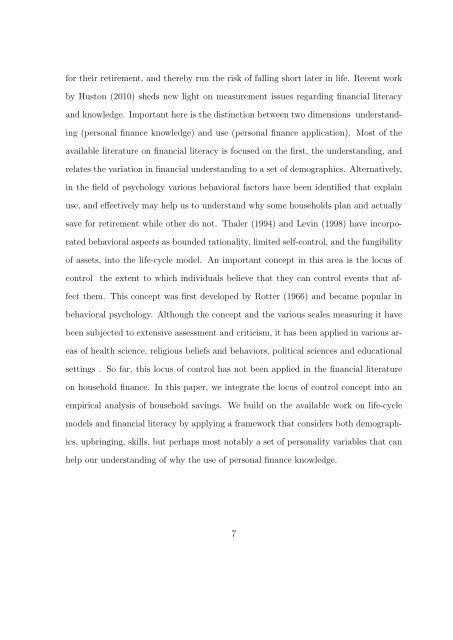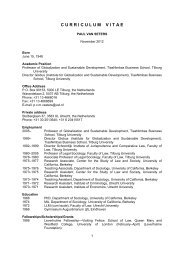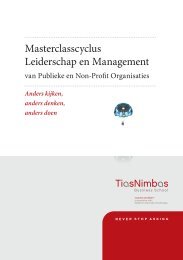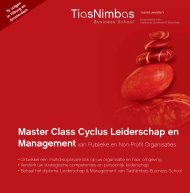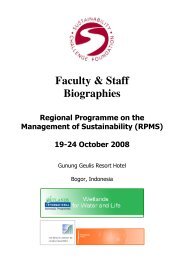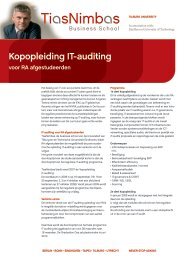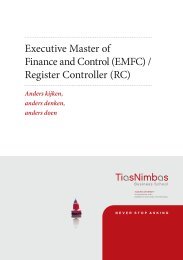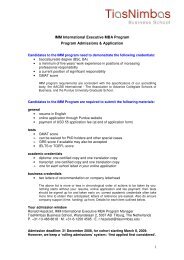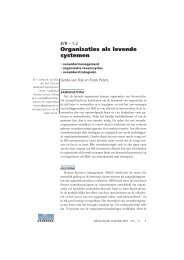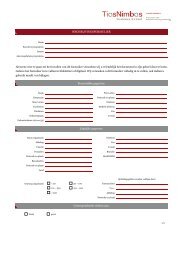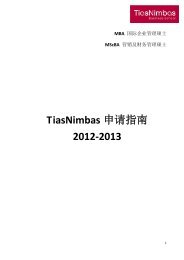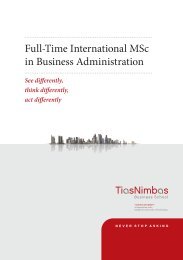Financial Responsibility, Personality Traits and Financial Decision ...
Financial Responsibility, Personality Traits and Financial Decision ...
Financial Responsibility, Personality Traits and Financial Decision ...
You also want an ePaper? Increase the reach of your titles
YUMPU automatically turns print PDFs into web optimized ePapers that Google loves.
for their retirement, <strong>and</strong> thereby run the risk of falling short later in life. Recent work<br />
by Huston (2010) sheds new light on measurement issues regarding financial literacy<br />
<strong>and</strong> knowledge. Important here is the distinction between two dimensions underst<strong>and</strong>-<br />
ing (personal finance knowledge) <strong>and</strong> use (personal finance application). Most of the<br />
available literature on financial literacy is focused on the first, the underst<strong>and</strong>ing, <strong>and</strong><br />
relates the variation in financial underst<strong>and</strong>ing to a set of demographics. Alternatively,<br />
in the field of psychology various behavioral factors have been identified that explain<br />
use, <strong>and</strong> effectively may help us to underst<strong>and</strong> why some households plan <strong>and</strong> actually<br />
save for retirement while other do not. Thaler (1994) <strong>and</strong> Levin (1998) have incorpo-<br />
rated behavioral aspects as bounded rationality, limited self-control, <strong>and</strong> the fungibility<br />
of assets, into the life-cycle model. An important concept in this area is the locus of<br />
control the extent to which individuals believe that they can control events that af-<br />
fect them. This concept was first developed by Rotter (1966) <strong>and</strong> became popular in<br />
behavioral psychology. Although the concept <strong>and</strong> the various scales measuring it have<br />
been subjected to extensive assessment <strong>and</strong> criticism, it has been applied in various ar-<br />
eas of health science, religious beliefs <strong>and</strong> behaviors, political sciences <strong>and</strong> educational<br />
settings . So far, this locus of control has not been applied in the financial literature<br />
on household finance. In this paper, we integrate the locus of control concept into an<br />
empirical analysis of household savings. We build on the available work on life-cycle<br />
models <strong>and</strong> financial literacy by applying a framework that considers both demograph-<br />
ics, upbringing, skills, but perhaps most notably a set of personality variables that can<br />
help our underst<strong>and</strong>ing of why the use of personal finance knowledge.<br />
7


